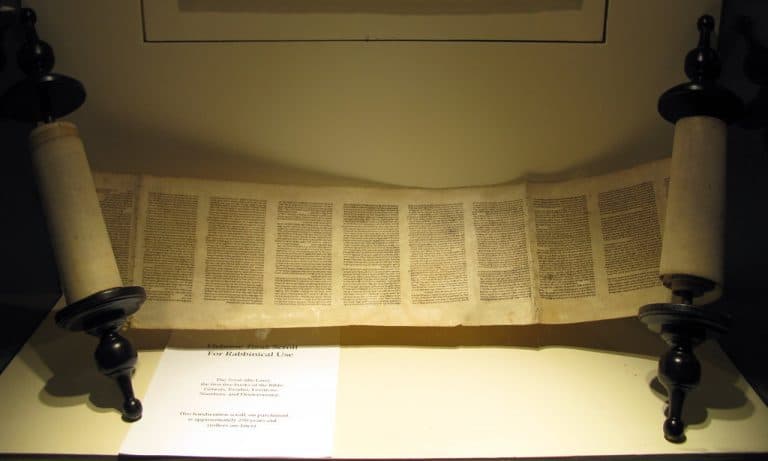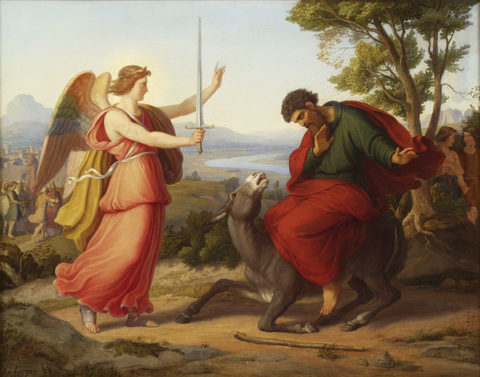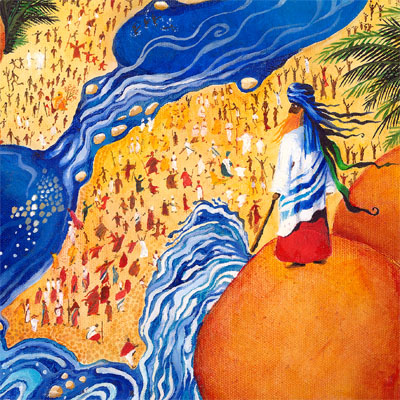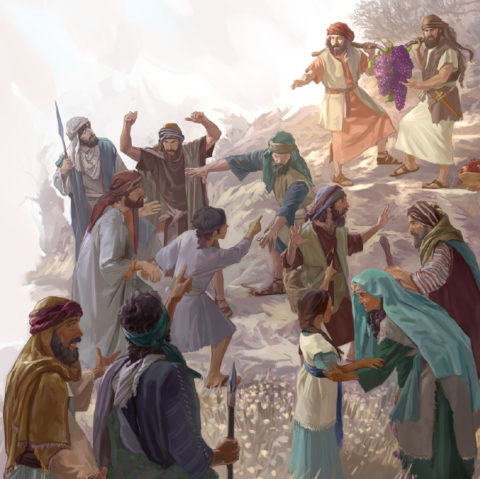Matot/Massei – Numbers 30:2 – 36:13 (Jul. 9/10)

As the Torah Turns
Rabbi Lader’s Weekly D’var Torah
Mattot/Mase’ei – Num. 30:2-32:42/33:1-36:13 (Jul. 9/10)
It seems like it was only yesterday that we began the book of Numbers, and yet, with this week’s double portion of Matot/Massei Numbers 30:2 – 36:13, we find Moses sharing instructions and land distribution rights with the Israelites, as well as recounting the journeys – massei – of the Israelites, outlining their travels from Egypt through the desert.
“These were the marches of the Israelites who started from the land of Egypt, troop by troop, in the charge of Moses and Aaron. Moses recorded the starting points of their various marches as directed by the Lord….” (Numbers 33:1-2).
Why list every starting – and stopping – point on the Israelites’ journey? Various midrashim and rabbinic commentators offer various explanations: “Cup half full” – 1) the travels are enumerated to emphasize and highlight God’s power, and to ensure that the Israelites recognize God’s strength… “Cup half empty” – 2) the detailed review will act as a rebuke to the Israelites, for according to the Midrash, every place that is listed was a locus of sins committed by the Israelites… “Hey, you held on to the cup!” – 3) Sforno, a medieval commentator, explains that the Torah’s listing acts to praise the Jewish nation – the list of their stopping points highlights the challenges they faced, and by extension praises their faith. Abigail Dauber Sterne, Educator for the Mandel Fellows Institute, suggests that the text might be telling us something about journeys per se. “The Torah is emphasizing the value of travel. By repeating the Israelites’ itinerary, the text draws attention to all the places that the Israelites have been and to all the experiences they have had. In essence, the Torah is saying that there is inherent value to journeys, to life experiences. Whether these experiences are one’s great triumphs and miracles or whether they are one’s trials and failures, they are, in and of themselves, important. For every individual, every family, and every nation, our collected experiences create who we are and what is meaningful to us.” Thus, our Torah teaches us that the recounting of the Israelites’ journeys and their experiences is important for them – and for us – as they (and we) appreciate the development of our people’s (and our own) unique character and identity. As we conclude the fourth book of Torah, we say together: Be strong! Be Strong! And let us strengthen each other!
Be strong! Be Strong! And let us strengthen each other!

From Previous Weeks

Balak – Num. 22:2-25:9 (Jun. 25/26)
What makes the unseen seen? What makes the unknown known?

Chukkat – Numbers 19:1-22:1 (Jun. 18/19)
Can you spot the difference?

Korach – Numbers 16:1-18:32 (Jun. 11/12)
…great leaders like Moses do not direct attention to themselves but focus our gaze upwards…

Shelach Lecha – Numbers 13:1-15:41 (Jun. 4/5)
[T]he twelve men were not sent to spy…

